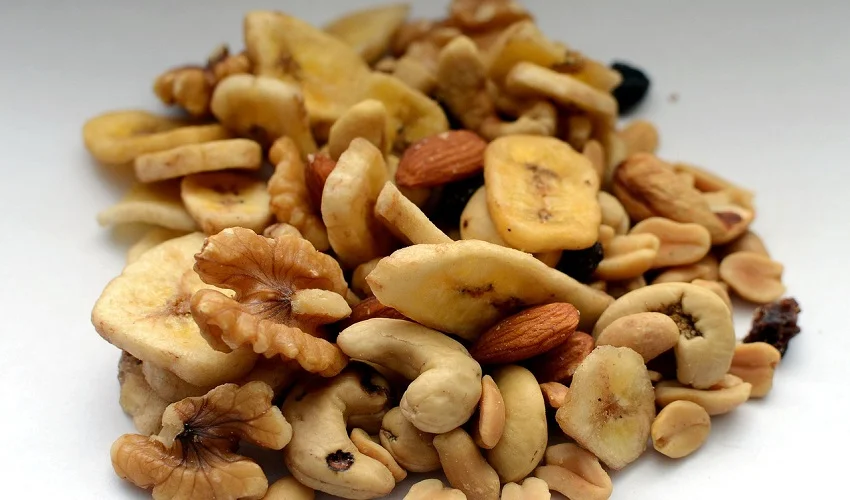Living with diabetes can be challenging, requiring constant attention and careful management. However, by incorporating healthy habits and establishing routines into daily life, individuals can simplify their diabetes management and improve their overall quality of life. In this article, we will explore the importance of building healthy habits, provide practical strategies for managing diabetes effectively, and highlight the positive impact these habits can have on the lives of diabetic patients and their caregivers.
Understanding Diabetes and its Impact on Quality of Life
Diabetes: A Brief Overview
Diabetes is a chronic condition that affects the body’s ability to regulate blood glucose levels. There are two main types of diabetes: type 1 and type 2. Type 1 diabetes occurs when the body does not produce enough insulin, while type 2 diabetes results from the body’s ineffective use of insulin.
The Impact of Diabetes on Quality of Life
Living with diabetes can significantly impact an individual’s quality of life. It requires constant monitoring of blood glucose levels, adherence to medication regimens, careful meal planning, and maintaining a healthy lifestyle. Uncontrolled diabetes can lead to various complications, including heart disease, kidney problems, nerve damage, and vision loss. However, with proper management and the adoption of healthy habits, individuals can minimize the impact of diabetes on their daily lives.
The Significance of Healthy Habits in Diabetes Management
Establishing a Routine
Establishing a routine is essential for effective diabetes management. By incorporating specific habits into daily life, individuals can create structure and consistency, making it easier to manage their condition. Some key habits to include in a diabetes management routine are:
Regular Blood Glucose Monitoring
Regular blood glucose monitoring is crucial for understanding how the body responds to different foods, activities, and medications. By monitoring blood glucose levels, individuals can make informed decisions about their diet, medication dosage, and physical activity.
Medication Adherence
Adhering to prescribed medication regimens is vital for managing diabetes effectively. It is important to take medications as directed by healthcare providers, follow the prescribed dosage, and be aware of potential side effects.
Meal Planning and Timing
Planning and timing meals can help maintain stable blood glucose levels. It is important to create a balanced meal plan that includes a variety of nutrient-rich foods, focuses on portion control, and considers the glycemic index of carbohydrates.
Balanced Nutrition
Nutrition plays a key role in managing diabetes and maintaining overall health. Adopting a balanced and nutritious diet can help regulate blood glucose levels and reduce the risk of complications. Consider the following:
Understanding Carbohydrates, Proteins, and Fats
Carbohydrates, proteins, and fats are the three main macronutrients that affect blood glucose levels. Understanding the impact of each nutrient and making appropriate food choices can help manage diabetes effectively.
Portion Control and Glycemic Index
Controlling portion sizes and choosing foods with a low glycemic index can help prevent blood glucose spikes. It is important to monitor portion sizes and be mindful of the quality and quantity of carbohydrates consumed.
Incorporating Fiber-rich Foods
Including fiber-rich foods, such as fruits, vegetables, whole grains, and legumes, in the diet can help regulate blood glucose levels, improve digestion, and promote overall health.
Regular Physical Activity
Physical activity is beneficial for everyone, including individuals with diabetes. Regular exercise can help improve insulin sensitivity, manage weight, lower blood glucose levels, reduce the risk of heart disease, and enhance overall well-being. Consider the following:
Benefits of Exercise for Diabetes Management
Engaging in physical activity has numerous benefits for diabetes management, including improved blood glucose control, increased energy levels, enhanced cardiovascular health, and reduced stress.
Choosing Suitable Activities
It is important to choose activities that are suitable for individual fitness levels and preferences. Options include walking, swimming, cycling, dancing, and strength training. Consulting with a healthcare provider before starting an exercise program is advisable.
Tips for Incorporating Exercise into Daily Life
Finding opportunities for physical activity throughout the day, setting realistic goals, and gradually increasing activity levels can help make exercise a sustainable part of the routine.
Quality Sleep and Stress Management
Quality sleep and effective stress management are often overlooked aspects of diabetes management. However, they play a crucial role in overall health and well-being. Consider the following:
Importance of Sleep in Diabetes Management
Sufficient and restful sleep is essential for regulating blood glucose levels, maintaining a healthy weight, and promoting optimal overall health. Lack of sleep can lead to increased insulin resistance and imbalanced hormone levels.
Strategies for Better Sleep
Establishing a regular sleep schedule, creating a relaxing bedtime routine, optimizing the sleep environment, and avoiding stimulants can help improve sleep quality and duration.
Stress Reduction Techniques
Managing stress is important for diabetes management. Stress can affect blood glucose levels and make it more challenging to adhere to healthy habits. Engaging in stress-reducing activities such as meditation, deep breathing exercises, yoga, and engaging hobbies can be beneficial.
Strategies to Simplify Diabetes Management
Organization and Planning
Being organized and planning ahead can simplify diabetes management. Consider the following strategies:
Creating a Diabetes Management Plan
Develop a comprehensive diabetes management plan that outlines medication schedules, meal plans, exercise routines, and regular check-ups. This plan serves as a guide and helps ensure consistency in managing the condition.
Utilizing Technology and Apps
Technology can be a valuable tool in diabetes management. There are various smartphone apps and devices available that can help track blood glucose levels, log meals, monitor physical activity, and provide educational resources.
Effective Communication with Healthcare Providers
Regular communication with healthcare providers is essential for effective diabetes management. Consider the following:
Importance of Regular Check-ups
Regular check-ups with healthcare providers allow for ongoing monitoring of diabetes, adjustment of treatment plans, and addressing any concerns or questions. Maintaining a strong partnership with healthcare providers helps ensure optimal management of the condition.
Sharing Concerns and Seeking Clarification
Openly discussing concerns, asking questions, and seeking clarification during healthcare appointments can help individuals gain a deeper understanding of their condition and receive the necessary support and guidance.
Support Systems and Education
Engaging in support systems and seeking education can significantly impact diabetes management. Consider the following:
Engaging in Diabetes Support Groups
Connecting with others who have diabetes through support groups or online communities provides a platform for sharing experiences, seeking advice, and receiving emotional support.
Educating Yourself and Your Caregivers
Staying informed about diabetes management strategies, treatment options, and the latest research empowers individuals and caregivers to make informed decisions and actively participate in managing the condition.
Involving Family and Friends
Educating and involving family and friends in diabetes management creates a supportive environment and enhances understanding and collaboration.
Tracking Progress and Celebrating Achievements
Tracking progress and celebrating achievements can provide motivation and reinforce healthy habits. Consider the following:
Monitoring Blood Glucose Levels
Regularly monitoring blood glucose levels is important for understanding how various factors influence diabetes management. Self-monitoring blood glucose (SMBG) or using continuous glucose monitoring (CGM) systems can provide valuable insights.
Keeping a Diabetes Diary
Keeping a diabetes diary, including blood sugar readings, meals, medications, physical activity, and emotions, can help identify patterns and make informed adjustments to the diabetes management plan.
Celebrating Milestones and Achievements
Recognizing personal progress and achievements, such as reaching blood glucose targets, maintaining healthy habits, and overcoming challenges, helps individuals stay motivated and engaged in their diabetes management.
Living with diabetes requires constant attention and management, but by incorporating healthy habits and routines, individuals can simplify their diabetes management and improve their overall quality of life. Establishing a routine, embracing balanced nutrition, engaging in regular physical activity, managing sleep and stress, and utilizing effective strategies are key steps towards taking charge of diabetes. Remember, building healthy habits is a journey that starts with a commitment to self-care and can lead to a healthier, more fulfilling life with diabetes.




